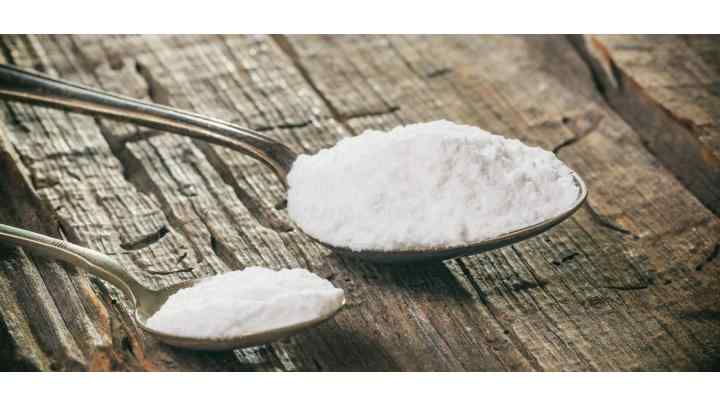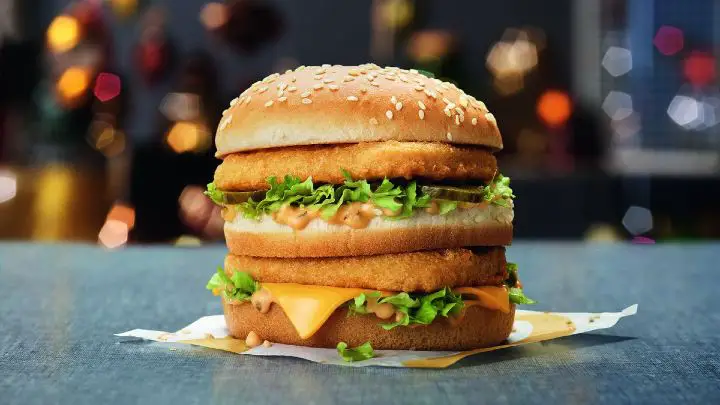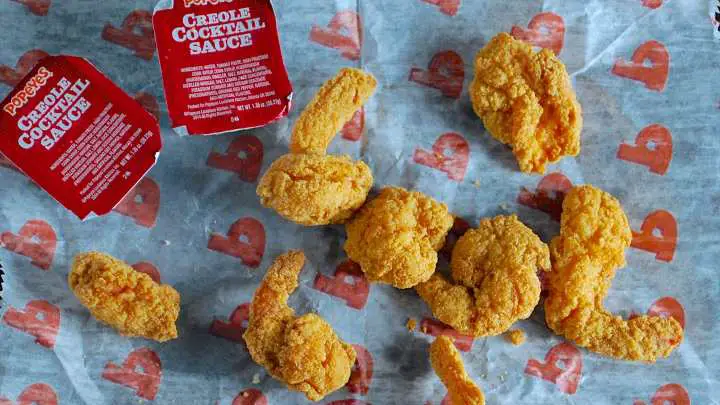What does baking soda taste like? Baking soda has a bitter and soapy taste. However, due to the multiple ingredients used, the taste invariably starts to fade into the batter when used as a leavening agent in baking.
As a result, you must always ensure that you use the proper amount of powder in whatever food you prepare so that the bitter taste does not overpower it.
Consequently, this article will help you better understand the taste of baking soda as it provides a breakdown of the taste, feel, as well as side effects it may have.
What is baking soda?
In contemporary kitchens, baking soda is a common alkaline white powder ingredient. It functions as a chemical leavener, releasing carbon dioxide in response to an acid (such as vinegar), which creates bubbles that aid in the cake or cookie rising to the ideal level of tenderness, moistness, and fluff.
What does baking soda taste like?
A base with a strong, soapy, and bitter flavor is baking soda. Because it causes chemical changes with the other condiments to produce bubbles of carbon dioxide, which cause the baked goods to rise or give them their fluffy texture, that flavor is very common in baking powder and some bread.
SEE: What Active Ingredients In Baking Soda Contains
What does baking soda taste like in water?
It has a saltwater flavor that is light and easy to swallow but not overly sweet or filling.
Depending on how strong they find the flavor and the type of liquid used, each person’s experience with baking soda and water will be different (water or something else).
Additionally, some people claim that you could clean your kitchen and other substrates in your home with this beverage.
Mixing baking soda with acidic foods like citrus fruit, lemonade, or tomato juice is the best way to consume it with water. When combined, carbonation bubbles will appear when you stir the bottle (or jar).
What does expire baking soda taste like?
The taste and aftertaste of expired baking soda are sour and almost acidic. It tastes like baking soda that hasn’t expired but is twice as bitter.
What does baking soda toothpaste taste like?
It tastes strongly of baking soda and mint. Many people don’t find it appealing as a result.
Why does baking soda taste good?
Although baking soda by itself is not sweet, it is occasionally added to black tea because the chemical reaction with the tannins in the tea lessens their bitter taste.
Therefore, baking soda lacks sweetness and is quite bitter when combined with acidic substances; it can help produce sweetness.
Does baking soda taste salty?
Yes, baking soda occasionally has a salty-sour taste. In recipes with acidic condiments, like buttermilk, brown sugar, yogurt, lemon juice, vinegar, cream of tartar, applesauce, natural cocoa powder, honey, or molasses, baking soda is often used as a leavening agent.
SEE: Can You Use Arm and Hammer Baking Soda For Baking?
What does baking soda smell like?
Everyone is aware that bases can neutralize acids. A base is sodium bicarbonate, also known as baking soda. Because it is not volatile, it reacts with butyric acid to produce sodium butyrate, which has no smell.
Can you eat baking soda?
It’s not a good idea to eat it raw without any other food if that’s what you’re thinking. Apart from a can of baking powder on the grocery store shelf, baking soda is not meant to be consumed or substituted for table salt.
Side effects of baking soda
Even though baking soda has a lot of potential, especially when used for cleaning and baking, there are some drawbacks.
Poisoning
It is possible to consume too much baking soda when using it in powder form. Unpleasant side effects like digestive discomfort may result from this.
Baking soda can also be poisonous if consumed in excess. This is because the powder has a lot of sodium.
When someone consumes an excessive amount of sodium bicarbonate, the body tries to restore the proper level of salt by bringing water into the digestive tract. Excessive intake can cause diarrhea and vomiting.
Dehydration, seizures, kidney failure, slow and shallow breathing, and seizures can all result from sodium absorption.
Ruptured intestine
Baking soda in large doses can also cause stomach ruptures. When baking soda and acid are combined, a chemical reaction happens. Gas is released because of this reaction.
The National Capital Poison Center (NCPC) cautions that consuming too much baking soda at once can result in a buildup of gas that can rupture the stomach. After an individual has consumed a lot of food or alcohol, this reaction is more likely to occur.
Toxic for children
A child should not be given baking soda or any medications that contain sodium bicarbonate by a parent or other adult caregiver.
The Missouri Poison Center recommends following these steps if a parent or caregiver discovers a child consuming baking soda: remaining calm; wiping away any leftover baking soda from the mouth with a soft, wet cloth; removing as much as possible from the inside of the mouth; providing the child with water to drink; and calling the neighborhood poison control center.
If a parent or other adult is unsure whether a child has consumed any baking soda, they can watch for early overdose signs like diarrhea and vomiting.
Interference with medications
According to the Canadian Society of Intestinal Research, baking soda may have an impact on how well the body assimilates medication. This could have a wide range of negative effects depending on the meds a person takes.
SEE: How You Can Tell If Baking Powder Is Acid or Base
Cardiac arrests
Sodium, a part of baking soda, can harm the heart if consumed in large quantities.
According to a 2016 case study, some people who consumed too much baking soda experienced heart arrhythmias.
Additionally, cases of cardiac arrest brought on by baking soda overdoses have been reported. When the heart abruptly stopped pumping blood, this happens, and it can be fatal.
Avoid using sodium bicarbonate or baking soda if you have cardiovascular disease or need to limit salt for medical reasons.
FAQs
Is baking soda good for teeth and gums?
When used without bleaching agents, baking soda has been shown to help kill germs that cause dental problems and has made a significant contribution to better gum health.
Baking soda helps remove surface stains and breaking up biofilm that infuriates the gums.
Is baking soda rough?
You might describe it as abrasive, in which case you should exercise caution when using it on surfaces that are sealed lightly or that have finishes that can be worn off.
You should also be careful with scrubbing too hard with a scratchy sponge. Additionally, because some materials are more responsive than others, discoloration may result from baking soda.
Can baking soda burn your skin?
Baking soda is safe, but it can irritate the skin. Most people don’t realize they are allergic to baking soda until they start using it topically.
When used in freshly made or natural deodorants, it is infamous for giving some people burning, redness, and rashes in their armpits.
What makes baking soda fizz?
The carbonate in the bicarbonate of soda and citric acid combine to create carbon dioxide gas. What makes your drink fizzy are these carbon dioxide bubbles.
Conclusion
Baking soda’s flavor is principally bitter and salty, with a less distinct aftertaste. As a result, to mitigate the bitterness effect, the powder must be combined with several other ingredients.
Nevertheless, too much can convert neutral to saline, giving you a purgative calmness on the tongue.
Furthermore, when used excessively or given to children, the powder may have some drawbacks. As a result, use it in moderation and calculate the correct quantity to use when baking.
Thanks for reading.
If you enjoyed reading this article, view Cheffist for more.






